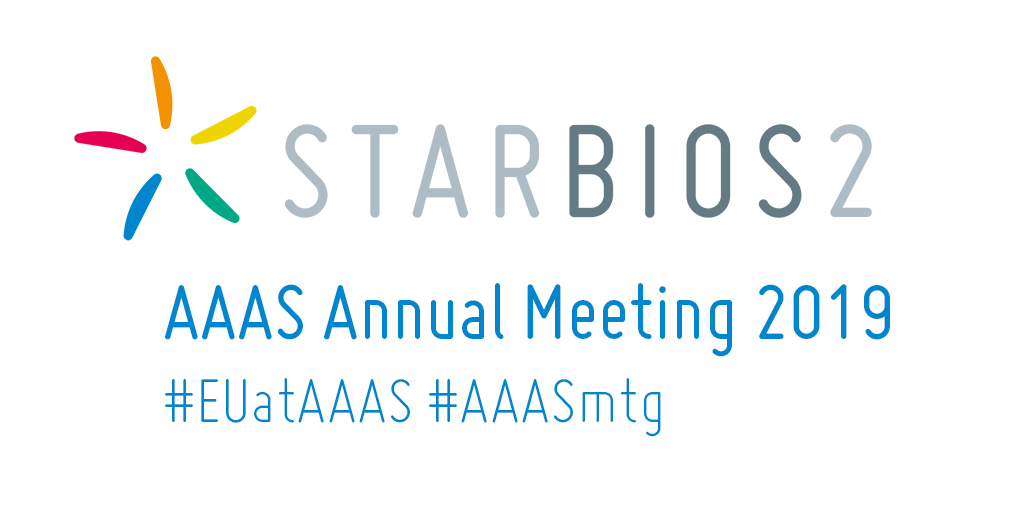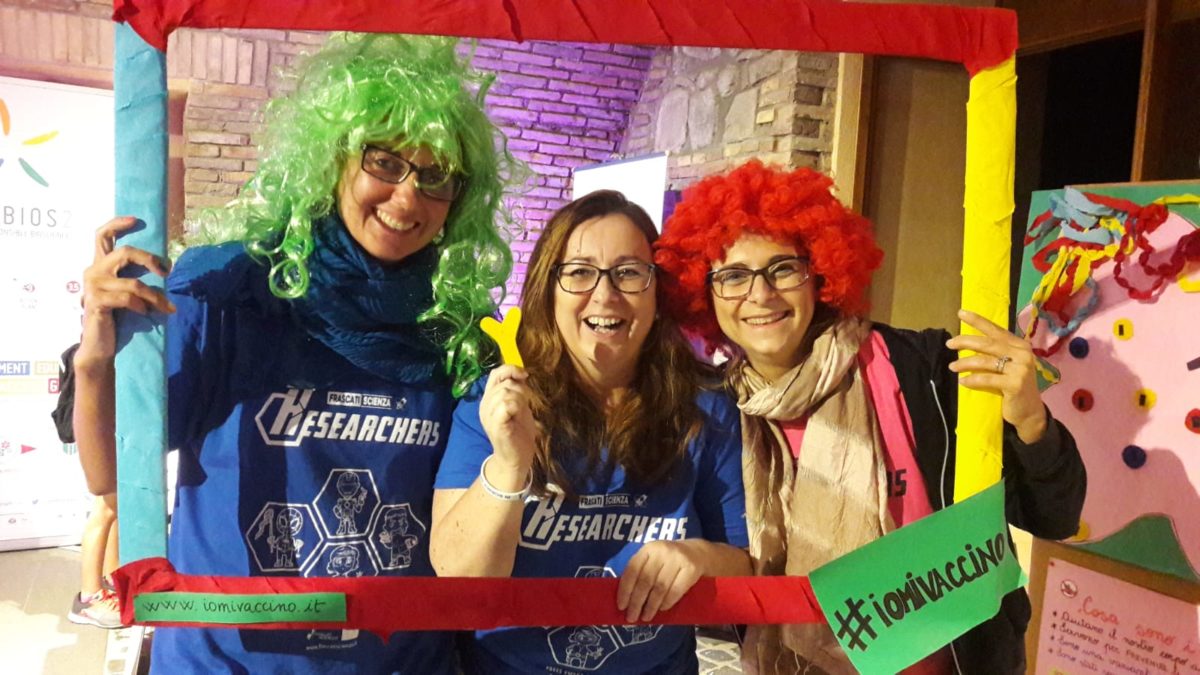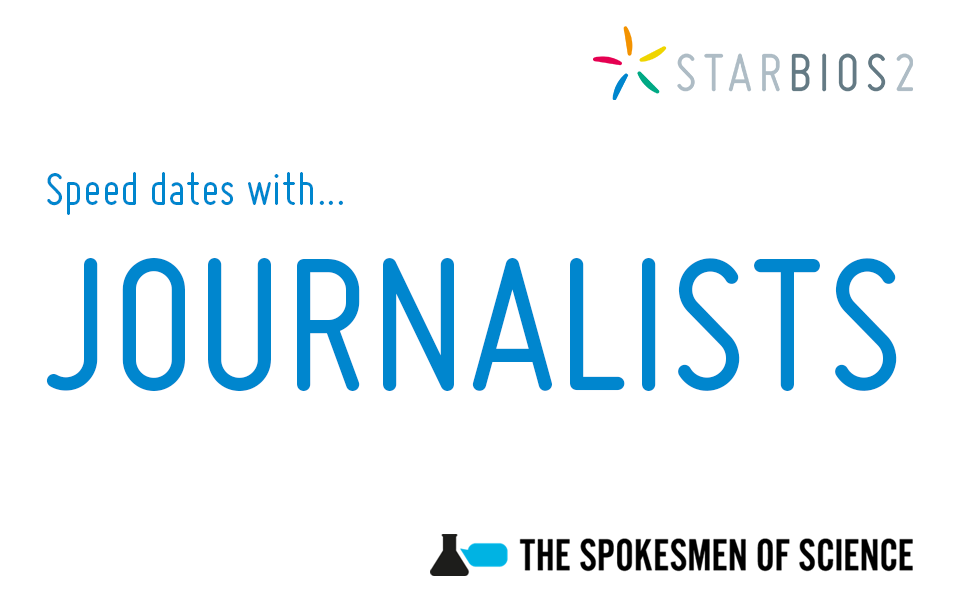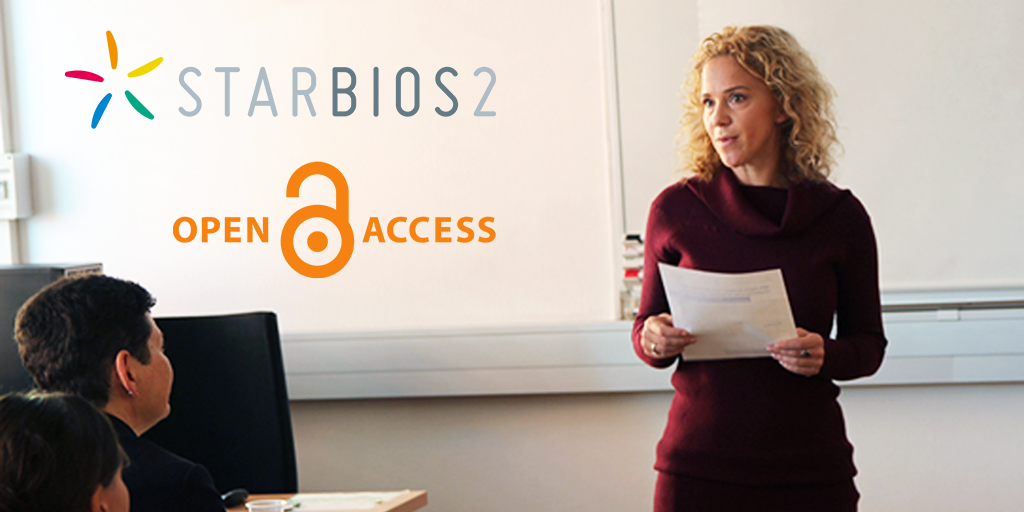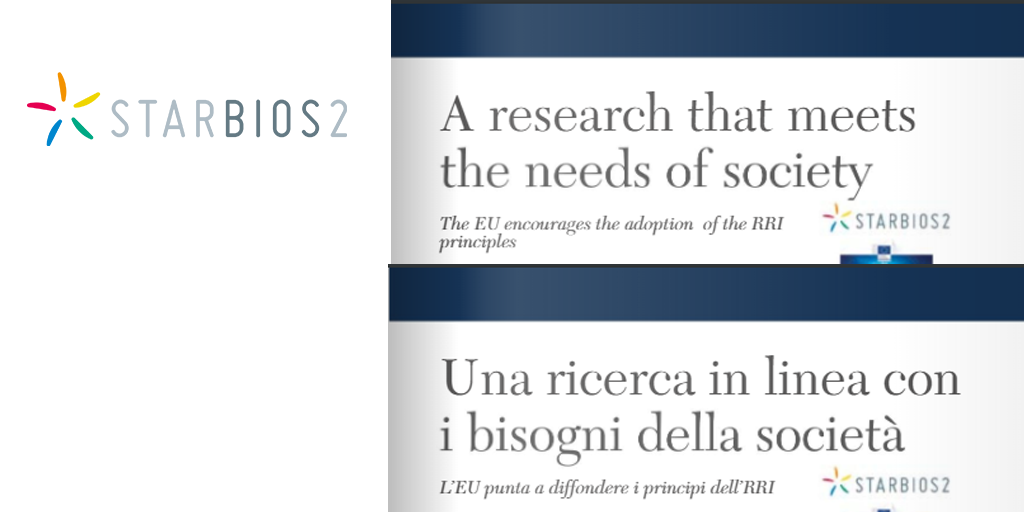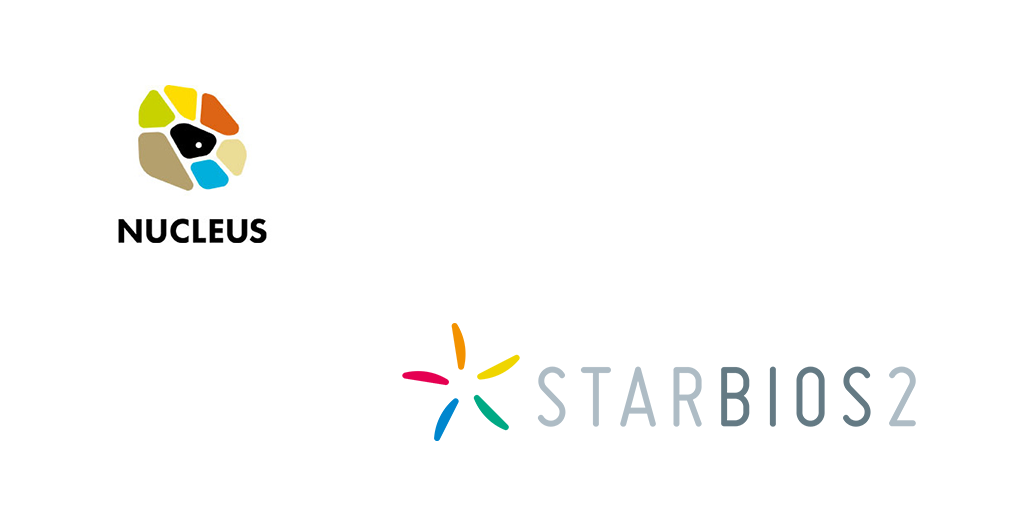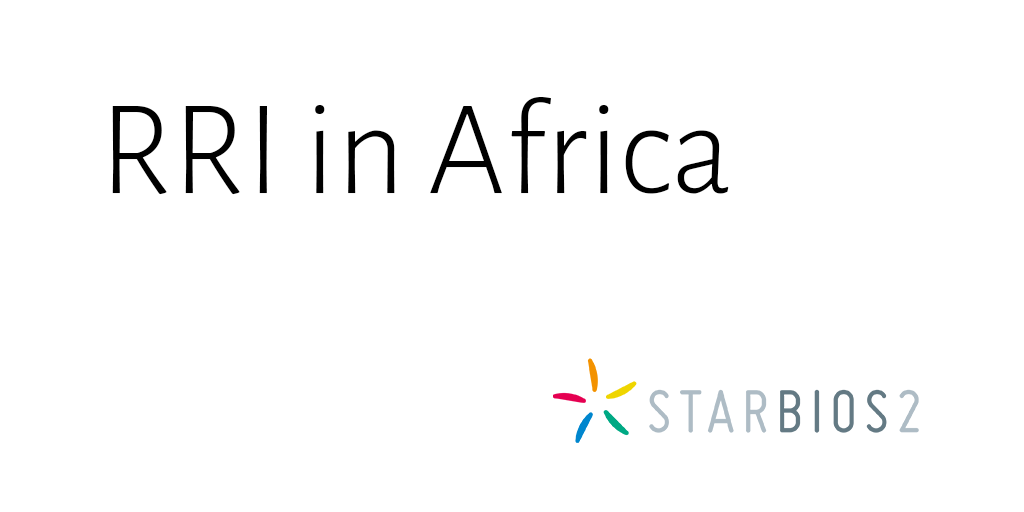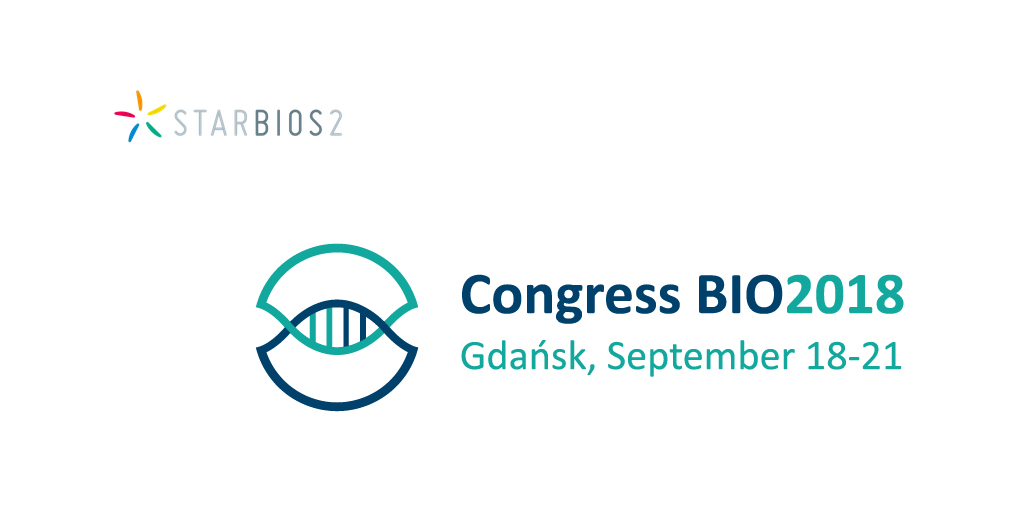Saturday, February 16th 2019, the STARBIOS2 session “Epigenetics in Infection, Diets and Environment: Responsible Research and Innovation” takes place at AAAS Annual Meeting 2019 in Washington DC. Saturday, February 16, 2019 08:00 AM – 09:30 AM, Marriott Wardman Park – Washington 2 Synopsis The study of infections, nutrition, and the related epigenetic aspects are areas of the biosciences that cross scientific disciplines and concern diverse stakeholders. Relevant examples are recent viral epidemics that demonstrated the importance of DNA sequencing and big data analysis for molecular epidemiology and vaccine development, and issues related to nutrition that comprise environmental factors which affect health and that, under certain conditions, can even alter human gene expressions. Stakeholders are faced with raising public awareness of epidemics and vaccines, improving nutrition globally, and fostering open access to big data. The European Union has developed the Responsible Research & Innovation (RRI) approach to address these challenges. The RRI encompasses public engagement, gender, open access, education, ethics, and governance. Understanding epigenetics in infections and nutrition requires RRI-related strategies to cross boundaries between disciplines and regions, as well as scientific and non-scientific communities. This session reports on projects from the European Union and Brazil which use the RRI approach to study recent viral epidemics and nutrition and provides indications of the various ways such an approach can be beneficial in these areas of research. Speakers Structural Change for RRI in Biosciences Research Institutions Claudia Colonnello, Laboratorio di Science della Cittadinanza , Rome, Italy RRI in Viral Infections and Nutrition …
Science Education: Opening doors to the future
Scientific discoveries and the scientific world must be available to everyone. And research should be performed with the public’s best interest in mind. STARBIOS2 aims to connect universities to with their local districts, to make science available to society. Engaging with your local community is a way to address the needs and demands of society, and to educate and inform the public of research findings. Engaging with and spreading scientific knowledge to your local community is an important part of the responsible research and innovation approach. It can increase the public’s trust in science and encourage young people to consider a career in research. The STARBIOS2 team at the University of Rome, Tor Vergata set out to engage with their local community at the European Night of the Researcher in Rome, an event organised to increase children and teenagers’ interest in science. And an opportunity to promote “Quality Education” and “Good Health”, in alignment with UNESCO’s goals for sustainable development. A team of students at Tor Vergata developed brochures on personal hygiene and sexually transmitted diseases, for children and teenagers respectively. Creating a link between research findings and societal benefits to increase their interest in science education. With the benefit of raising awareness of infectious diseases and the importance of prevention. The brochures also provided information on the local structures that deal with these problems. “Engaging with your local community is important. It also establishes the universities position as a trustworthy source of information. Getting local children and teenagers interested …
Season’s Greetings from the STARBIOS2 consortium!
Season’s Greetings from the STARBIOS2 consortium! And best wishes for 2019. We look forward to the coming year and our continued work towards responsible biosciences. Learn more by signing up to our newsletter
Speed dating journalists – for a lay-friendly science communication
Together with The Spokesmen of Science Association and the Copernicus Science Centre of Warsaw, STARBIOS2 partners at the University of Gdansk (the Intercollegiate Faculty of Biotechnology) organised the event “Speed dating – brief encounters between journalists and scientists”, December 7th 2018. With events organised in 10 Polish cities, for roughly 140 participants, this speed dating initiative is a national effort. The Gdańsk edition of the meeting took place at the Intercollegiate Faculty of Biotechnology of University of Gdańsk and Medical University of Gdańsk. Local scientists and media participated free of charge. These speedy exchanges of information and contact details are expected to increase the number of publications, articles, interviews, and TV and radio broadcasts that cover scientific subjects in a lay-friendly way. In line with the Responsible Research and Innovation concept, the objective is to stimulate and strengthen the relationship between scientists and media representatives. To build bridges between the academic environment and the general public. Marta Dziedzic & Anna Holm The speed dating initiative is supported by the Polish Ministry of Science and Higher Education. The Gdańsk edition received support from STARBIOS2 and was performed with the honorary patronage of Prof. Igor Konieczny, Dean of Intercollegiate Faculty of Biotechnology of University of Gdańsk and Medical University of Gdańsk.
Open Access: Benefits and challenges for the scientific community
What are the benefits and challenges of implementing open access as part of responsible research and innovation initiatives? The H2020 projects STARBIOS2 and InnoRenew CoE shed light on what Open Access means to the scientific community during their joint event November 16th 2018. Advocated by the European Research Commission, open access is part of the movement towards more responsible research and innovation. Using repositories, policies and recommendations for researchers to enable open access publication is increasingly common. The workshop included a lecture on Slovenia’s National strategy of Open Access to Scientific Publications and Research Data in Slovenia, followed by an introduction to Open Access for researchers. The University of Primorska also presented their Open Access initiatives. Managing open data on Open Access platform is an area of interest to many in the research community. How you keep your commitment to a publisher whilst still protecting the responsible research and innovation principle of open access? InnoRenew CoE contributed valuable insight into the subject during the workshop. STARBIOS2 partner University of Primorska’s Faculty of Mathematics, Natural Sciences and Information Technologies, co-host of the workshop would like to thank the speakers for their contributions to a successful workshop: dr. Klavdija Kutnar, dean of UP FAMNIT Petra Tramte – Ministry for Science, Education and Sport; NPR for Open Access and official delegate and NPR for Horizon 2020. Mojca Kotar, Assistant Secretary General of the University of Ljubljana in the University Office of Library Services. OpenAIRE National Open Access Desk for Slovenia. Viljem Leban- director …
Research that meets the needs of society – STARBIOS2 in Platinum
STARBIOS2 featured in the July 2018 issue of Platinum. The article is now available in both English and Italian. Take your pick! You will find STARBIOS2 on page 113. Read more in English: A research that meets the needs of society: The EU encourages the adoption of the RRI principles Read more in Italian: Una ricerca in linea con i bisogni della società: L’EU punta a diffondere i principi dell’RRI
STARBIOS2 perspectives on NUCLEUS conference
Andrea Declich represented STARBIOS2 at the fourth annual conference of the NUCLEUS project: “Living RRI: opening research to the needs and values of society”. Sessions and discussions drew from speakers and participants’ own experiences of responsible research and innovation (RRI) promotion, in and outside Europe. In this blog post, Andrea Declich shares his perspective. The “Living RRI” discussions covered several issues currently debated in the RRI community. For example, conference participants raised the issue of jargon. Although RRI may be especially relevant to academia, some of the vocabulary makes little sense to other stakeholders (e.g. industry) and is not helpful for their engagement in RRI promotion. Avoiding jargon is an important step towards promoting RRI outside the world of academia and the already established RRI community. An issue of debate is that many research institutions implement activities without realising they are actually implementing RRI. This connects to another issue also debated in Malta: the use of a standardised approach for RRI implementation. This had little support among conference participants. They considered a tailored approach that takes into account the organisations’ own needs and circumstances essential for successful implementation. With involvement of internal stakeholders, and exchange between them, the likelihood of success is much higher. When implementing structural changes, it is vital to consider the culture of the organisation. For research organisations, the practice of RRI is an approach to produce excellent science. Individual researchers using such approaches should be rewarded. But how? Some interesting discussions arose about incentives for RRI …
STARBIOS2 workshop on RRI in Africa
Is there a place for responsible research and innovation in African research institutions? With STARBIOS2 experiences in mind, the team at University of Rome Tor Vergata organised the workshop “RRI in Africa: Challenges and perspectives” to find out. To achieve the United Nations’ Millennium Developmental Goals, we need responsible research and innovation (RRI). But how do we implement RRI in African bioscience research institutions? At the RRI in Africa workshop, STARBIOS2 gained insights from the experiences of STARBIOS2 members, research and innovation collaboration projects between Italy and Africa, and African students. Among the around 80 participants were professors and PhD students in Europe and Africa, STARBIOS2 members, rectors of the Somali National University and Evangelic University of Cameroon, representatives of Italian universities (Camerino, Modena, Rome La Sapienza, Rome Tor Vergata, Padua, Parma, Pavia and others) and research institutions (CNR), and UNESCO. Focusing on RRI implementation in biosciences, some topics of discussion were the RRI approach, the specificity of RRI in Africa, experiences from higher education in Cameroon and Italy, student mobility, and scientific projects of Africa PhD students enrolled in Italian universities. The discussions resulted in some theories on how to best develop a plan for RRI implementation in African research institutions, and the conclusion that there may be a need to re-think the European strategy for RRI in the African context. Daniele Mezzana
STARBIOS2 satellite session at BIO2018 congress 18-21 September 2018
The 3rd Congress of Polish Biosciences “BIO2018 – Through interdisciplinary approach into new solutions” will be held at the Oliwa Campus of University of Gdańsk, Poland. This is also the 51st Meeting of the Polish Biochemical Society. The event takes the form of a joint congress and provides a forum for a wide range of researchers from all fields of bioscience. Apart from regular plenary and poster sessions, this is also the venue for an additional satellite session on women in science and responsible research and innovation organised with the help of STARBIOS2. On 20th September 2018 the session “Medical biotechnology in regenerative medicine and drug research” coorganised by the STARBIOS UG team will be led by the speakers: Dr. Agnieszka Łoboda, Jagiellonian University, Kraków, Poland, Prof. Robert Passier, University of Twente, Enschede, The Netherlands, Prof. Józef Dulak, Jagiellonian University, Kraków, Poland, Prof. Graziella Pellegrini, University of Modena, Modena, Italy. Another satellite session on “Women in Science” will be chaired by prof. Prof. Agnieszka Chacińska from the Centre of New Technologies University of Warsaw, Poland, with an introduction from Annie Black Deputy Executive Director L’Oréal Corporate Foundation, France. http://bio2018.ptbioch.edu.pl/ Medical biotechnology in regenerative medicine and drug research Session 11 part I Dr. Agnieszka Łoboda, Jagiellonian University, Kraków, Poland Prof. Robert Passier, University of Twente, Enschede, The Netherlands Session 11 part II Prof. Józef Dulak, Jagiellonian University, Kraków, Poland Prof. Graziella Pellegrini, University of Modena, Modena, Italy
STARBIOS2 on YouTube
Want to learn more about the project? Follow us on YouTube!




